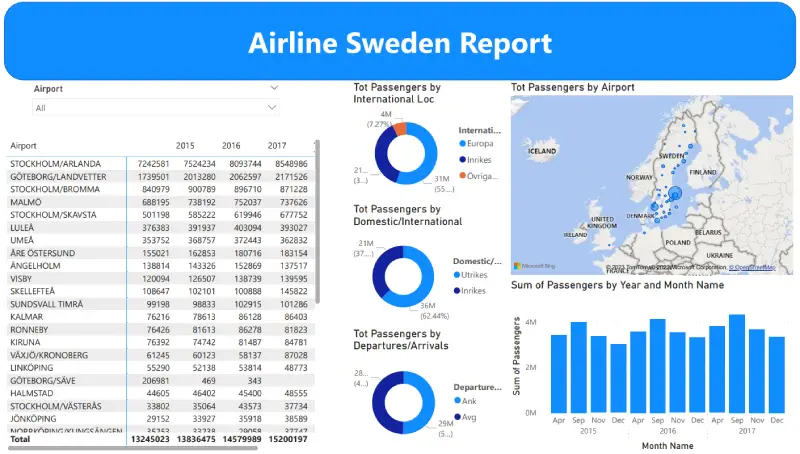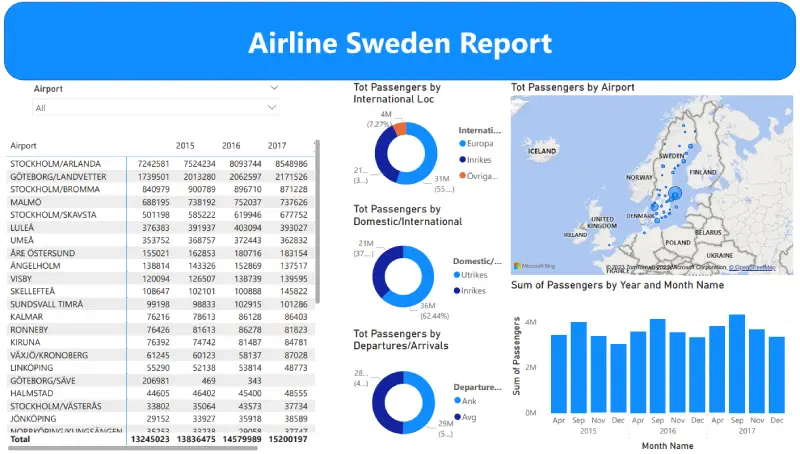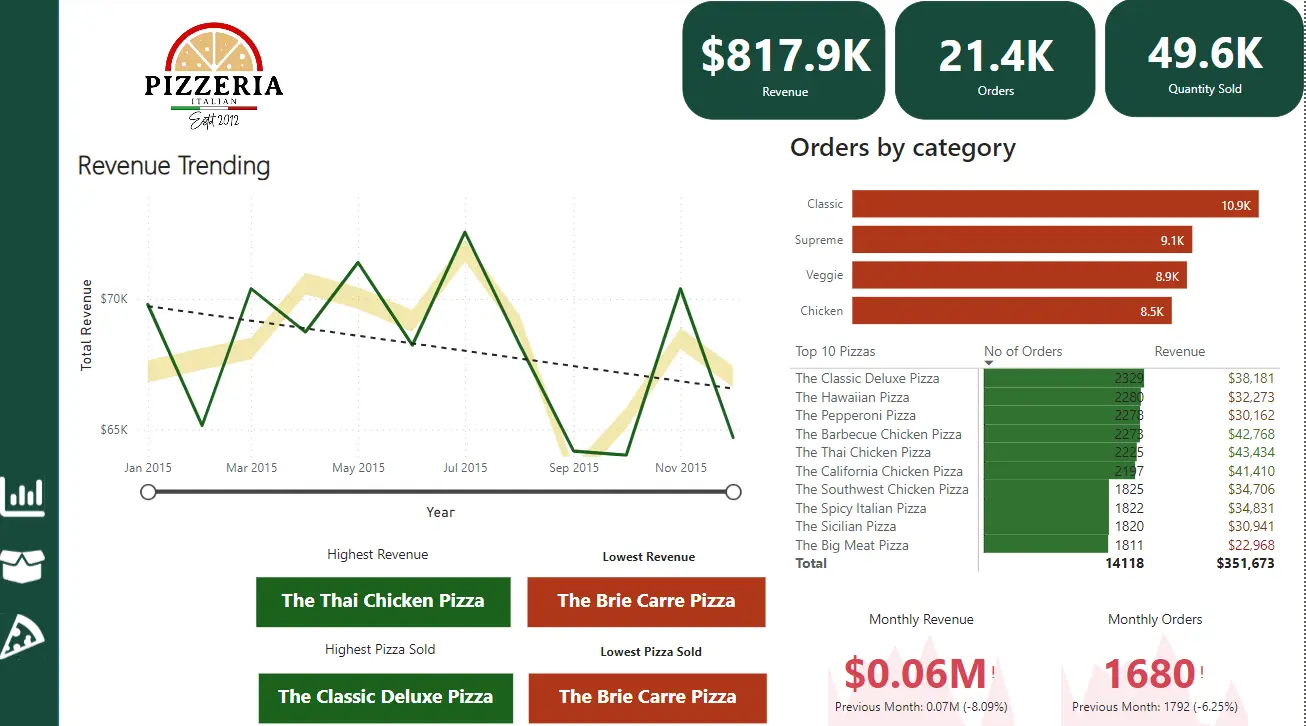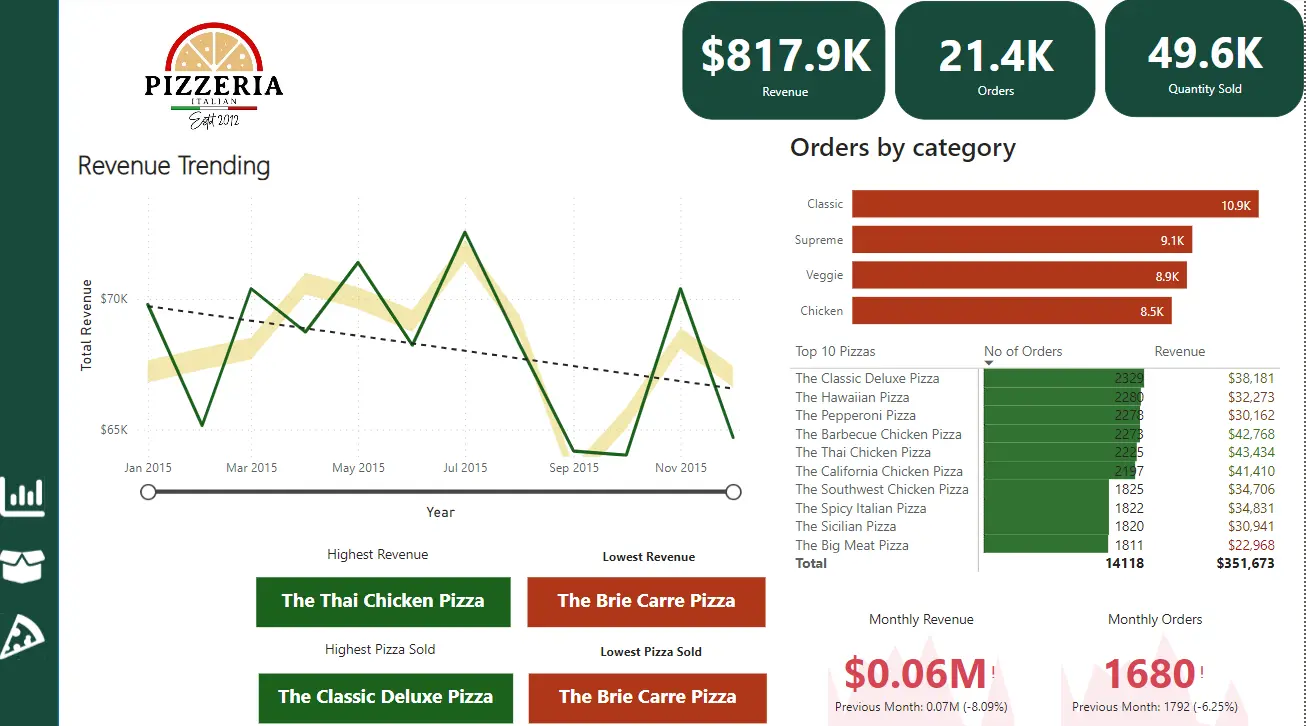SWIDEN AIRLINE
In the realm of business analytics, employing tools like Power BI or Power Query in Excel often entails extracting information from various sheets within the same Excel file. The complexity arises when these sheets necessitate adjustments before data integration. Unlike straightforward cases where all sheets share identical columns, more intricate scenarios demand a distinct approach. To address this challenge, follow these steps: Begin by connecting to your Excel file in Power BI and selecting “Edit.” Create a template query using one sheet to establish the logic applicable to all others.
Eliminate unnecessary columns and perform essential transformations, ensuring they won’t reference missing columns in other sheets. Generate a function using parameters to generalize the process. Finally, invoke the function for each sheet and amalgamate the data into a unified, refined table. Remember to set data types for each column. These steps empower even novices in data analysis to efficiently clean and consolidate data in Power BI.

This dataset encapsulates information pertinent to passenger traffic, encompassing departures and arrivals, airport details, year, location, and date. Let’s delve into key insights and formulate recommendations based on the available data.
Executive Summary: This report delves into the sales data of airlines in Sweden, offering a comprehensive analysis of key trends and actionable insights. The primary focus lies in comprehending passenger trends over time, identifying peak travel periods, and recognizing patterns in domestic and international flights. Passenger Trends Over Time: Findings: The overall trend in airline passenger numbers exhibits variations across months. Peak passenger traffic was observed in September, suggesting potential seasonal influences.
Recommendations:
Tailor marketing strategies to align with seasonal fluctuations in passenger demand. Explore partnerships or collaborations during peak travel months to enhance customer engagement. Domestic vs. International Flights: Findings: Domestic flights consistently show steady demand throughout the year was observed in Stockholm. International flights experience notable spikes during specific months, indicating possible tourism or business travel patterns. Recommendations: Enhance domestic flight promotions for sustained year-round engagement. Capitalize on international travel trends by offering targeted promotions during peak months.

- Busiest Airports and Routes:
Findings: Identify the busiest airports and routes based on passenger volume. Understand the popularity of certain destinations to optimize route planning. Recommendations: Streamline services and resources at high-traffic airports to improve passenger experience. Evaluate the potential for expanding services on popular routes to meet growing demand.
Conclusion :
This analysis of airline sales data in Sweden uncovers valuable insights into passenger trends, peak travel periods, and route preferences. Implementing the outlined recommendations can contribute to optimizing services, enhancing customer satisfaction, and ensuring the success of the airline industry in Sweden.










